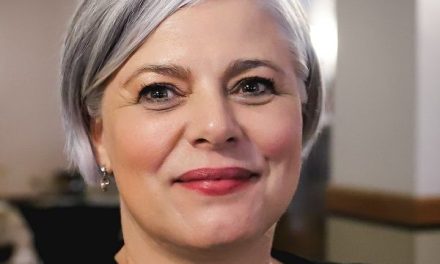
Reality hit Air Namibia in the wings on Friday
The Air Namibia early morning flight to Cape Town was delayed this Friday. That in itself is not very significant, airline flights are delayed all the time the world over for various reason. This could be anything from weather to technical problems to operational problems to security. It could even be the result of an abrupt policy change like what happened when the USA decided it will no longer receive visitors from certain Muslim countries.
Air Namibia’s Cape Town flight was delayed because one of the engines on the Airbus A319 would not start. This is the type of problem the pilot only detects after all the passengers are in the cabin. One does not start a jet engine when passenger are still crossing the apron. Everybody had to disembark while the engineers tried to finger the fault. But the flight was not delayed for half an hour or so, it was first delayed until 15:00 on Friday afternoon. But late on Friday afternoon, it was still stuck in Windhoek after the passengers have been sitting for almost two hours in the “replacement” unit.
Whereas any big international airline will simply reschedule or redirect other aircraft to stand in for a stranded unit in their fleet, with Air Namibia it is unfortunately far more complicated. The airline operates only four A319s and only ten airliners in total. So, in terms of a substitute jet or a flexible schedule your luck is out if you happened to be one of the passengers on the grounded early morning Cape Town aerie. Big airlines have the operational depth to ride out or manage around unforeseen events, Air Namibia does not.
The serious delay had some immediate ramifications. The mid-morning Johannesburg flight was also delayed as the airline scrambled to make alternative arrangements but if you only have four units available, and each one is fully committed to a daily schedule, there is little room to manoeuvre, in fact there is none.
The delay also had a myriad of secondary ramifications.
The reason why people fly so early is typically because they are on a business trip. They have a set number of meetings which they have to attend and many business people still try to catch the late evening flight back to Windhoek. When the flight goes, and there are no alternative options, then the meetings go. It is rather difficult to reschedule a Friday meeting when you arrive in Cape Town in the evening. Unless you have very flexible partners, it means the meeting can only take place on Monday, that is if everybody is available. So business people who go to Cape Town for a very specific reason, have lost the day and may find that the next meeting can only take place in a few days or so.
Although Air Namibia was very gallant assuring their Cape Town passengers it is just a matter of pinpointing the fault then everybody could get back into the aeroplane, by 12:00 it was clear to everybody that the fault is serious. This was confirmed when the hostesses started dishing out lunch tickets for some sustenance at Hosea Kutako’s restaurant. By that time, many passengers have returned to Windhoek, waiting for another day, after failing to find another flight by another airline to get them to Cape Town. By that time, many of them realised the day has been lost.
But not all the passengers are on a business trip. Some were booked for Cape Town for a normal leisure weekend. These were not affected so much, still many of those had to catch connecting flights to other destinations, not only in South Africa but also overseas. Obviously all these connecting flights were missed.
This brings us to the final round of unforeseen consequences, or number three in the list of ramifications. Those passengers who were booked on connecting flights quickly had to make alternative arrangements pestering travel agents to change bookings and reserve tickets. But those tickets have to be paid before they will be issued. What then is the use to fly to Cape Town late on Friday afternoon when you can not pay for another set of tickets to carry on with the intended journey, when all the money went into the first booking.
And this is where the costs start mounting astronomically for the poor Air Namibia. Now those connecting flight tickets will have to be refunded. If passengers have to stay over in Cape Town, those few who could actually inch in another set of tickets on the maxed credit card, then Air Namibia stand liable to cover those costs as well.
When these travellers have to rent a car to get to Cape Town from the airport, to get to their one-night hotel for which they had no intention to stay there, it becomes another added cost.
Eventually, the costs just keep piling up and a simple lunch ticket at Hosea Kutako will not suffice to appease Air Namibia’s disgruntled infrequent former flyers.
What the remedy is, I do not know. What is clear, however, is that our national airline must make up its mind in which niche it wants to operate and then stick to that slot. If it wants to go big, heaven forbid, then it must have the fleet and the people. If it only wants to stay regional, then it must be contend to fly to Ondangwa and Rundu and perhaps twice a week to Gaberone and Harare.
The choice is theirs, not the passengers’.










































